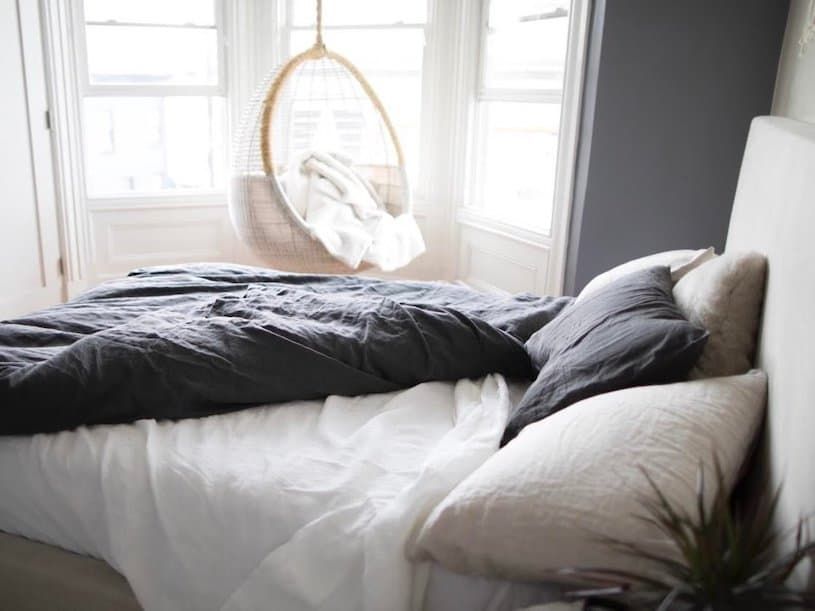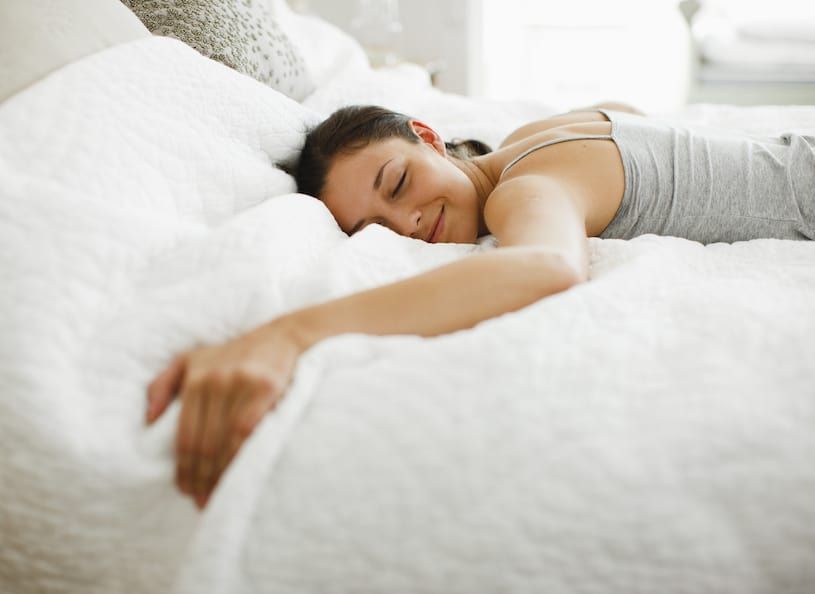
Back when you were younger, you would have eventually figured if you were a front, back, or side sleeper. Chances are that since then you’ve not changed that position, sticking to what you know best!
When you bring up sleep positions with friends, it’s a rather funny topic to get into. You’ll notice that people start to get ever so slightly defensive about what they do and don’t do. Some will say sleeping on your stomach is bad for your back, while others think that if you’re a back sleeper you’re bound to snore!
So when it comes down to it, have you ever wondered what really is the ultimate sleeping position for your health?
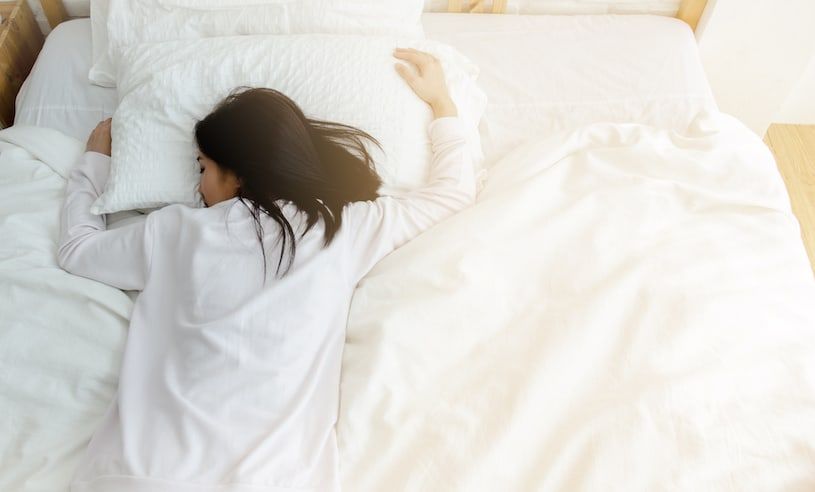
Each position holds its benefits, and on the same note, it’s disadvantages. As you get older, the position you sleep in actually becomes more important than in your youth, due to the build up of medical issues that accompanies age. The position you sleep in can therefore positively or negatively impact you in more ways than one, making it more important than ever to figure out what is best for you.
For the back sleepers…
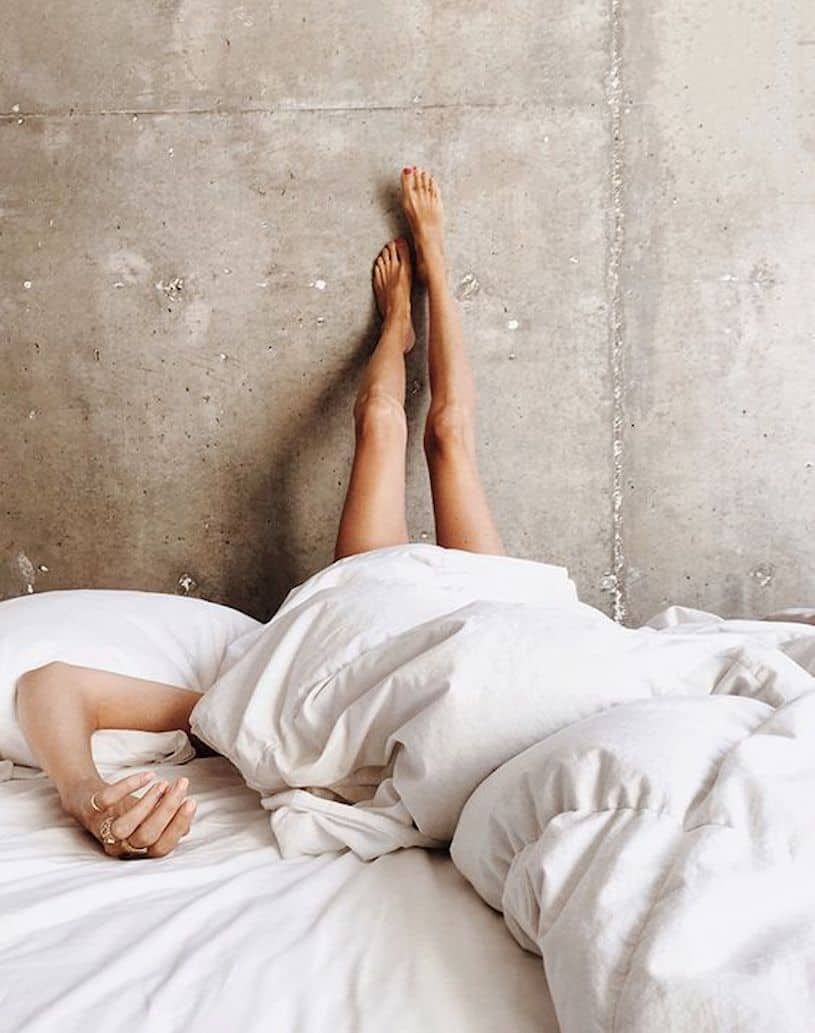
The science says that sleeping on your back (preferably with a pillow under your knees) is best for your spine health, as it alleviates the pressure off of your vertebrae as you lay. The natural curvature of your head, neck and spine is particularly supported in this posture, which is why you may have noticed it being used in yoga practices, massages, and physiotherapy treatments. Sleeping on your back is typically the go-to for those suffering from lower back pain, often being recommended by sleep physicians to help support this.
For the side sleepers…
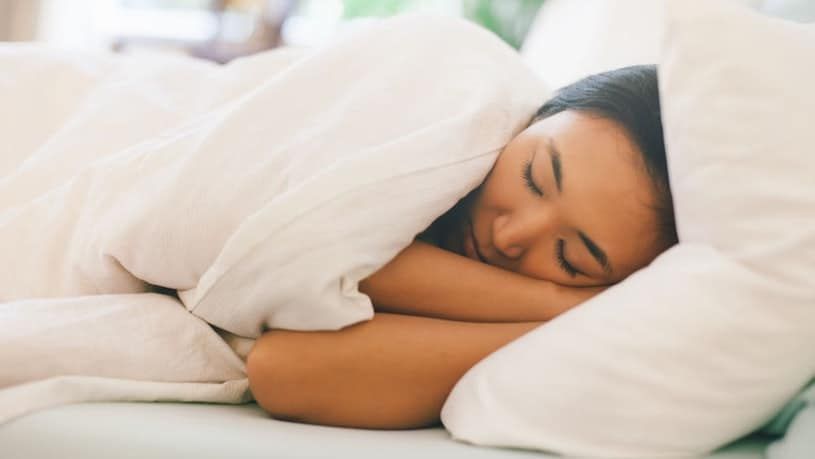
Did you know that around 74% of adults prefer to sleep on their side?
It has been proven that lying on your left side is more preferable than the right, largely for the digestive support it presents. This is thanks to the internal placement of your organs, with your stomach not being as smack bang in the middle of your body as you may think.
The effect that gravity has on your bowel movement can be most prevalent through the 8 or so hours you’re asleep, which is hence why some are “regular” in the morning, and others, well… not so regular! Because your stomach is slightly to the left of the body, sleeping on this side is known to minimise acid reflux, support toxin removal, facilitate digestion, and improve your circulatory function. Additionally, the direction that chyme (digested food) travels through the ascending, transverse, and descending colon, is best supported by lying on your left side.
For the stomach sleepers…

Okay, before any stomach sleepers can get upset, let us just preface that sleeping on your belly tends to get a bad wrap – but hey, that’s just science talking, not us! The main areas of complication are that sleeping on your front can throw your back out of line, place pressure on digestive organs, and force some of your muscles and joints into a position of discomfort. The only time that it seems to work best for your airways is when your head is straight down (think a massage bed here), as opposed to turned sideways.
Due to your spine being the “peak-hour busy” intersection of nerves that it is, placing any type of pressure in this region can shoot pain out to all areas of the body. If you experience pain in the lower back and neck, generally stomach sleeping is ill advised.
On the bright side, sleeping on your stomach has been shown to ease snoring, so if you or someone you know is too noisy for their own good, perhaps this is the position they need.
So let’s break down the take home position pointers:
BACK SLEEPING
- Put a pillow under your knees
- Eases back pain
- Helps keep skin clear
- Minimises digestive issues and reflux
SIDE SLEEPING
- Place a pillow between your legs for spinal support
- Sleep on your left side
- Good for regulating bowel function and digestion
- Supportive for sleep apnea
- Facilitates brain health
STOMACH SLEEPING
- Helps minimise snoring
- May place pressure on digestive function
- Bad for back pain sufferers
- Puts some muscles under stress
Ok so regardless of the science, and the studies, it really will come down to you as an individual.
Figuring out a good sleep position and routine is as important as the food you eat and exercise you do! Take the time to get to know yours by trialling different things … you need to find what works for you.
